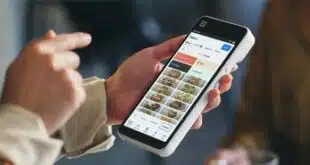By Jim Daly
Warehouse retailer Costco Wholesale Corp. has been in the news recently because it is replacing American Express Co. with Visa Inc. and Citigroup Inc. as its major-brand payment card partners. But a little-noticed change in its U.S. stores’ food courts shows what can happen when a retailer adds card payments to a mostly cash operation.
The benefits were much higher average tickets, improved employee productivity, and fewer costs associated with cash handling, according to Rue A. Jenkins, assistant vice president at Issaquah, Wash.-based Costco’s treasury office. Jenkins spoke Monday at the NACHA Payments 2015 conference in New Orleans on a panel about small-ticket payments.
Costco’s approximately 470 U.S. stores accept cash, checks, PIN-debit cards, an AmEx cobranded card for members as well as other AmEx cards, and its private-label prepaid card dubbed the Costco Cash Card. But until early this year, the stores’ food courts accepted only cash and checks.
“It’s been that way for over 30 years, and it’s worked very well,” Jenkins said. In the main part of the stores, however, sales have gradually migrated from cash and checks to cards, with 80% of sales now charged to PIN-debit or AmEx cards. Customers began asking to use cards in the food courts, too.
Adding cards there wasn’t a simple decision for Costco, however. Compared to the up-front cost of accepting cards, cash was a much cheaper tender form, and executives worried that card payments might slow down sales. Expanding the food court would solve the latter problem, but at the cost of taking space from other operations.
So rather than do a chain-wide change all at once, Costco in January 2014 began testing all of its usual payment options in the food courts of Phoenix stores. At the same time, it added acceptance of its closed-loop prepaid card in the food courts of stores in New Mexico.
“The reason we did that was because the Cash Card cost is very, very efficient” regarding acceptance costs, Jenkins said.
The test proved successful, and Costco opted to abandon its cash-and-checks-only policy in the food courts. Chain-wide addition of point-of-sale terminals with PIN-debit capability began last October and was largely complete by February.
Costco quickly saw big lifts in average tickets at the food courts—PIN-debit sales came in 40% higher than the average cash ticket, and the average AmEx ticket was 50% higher than the average cash sale. “That was actually some very good news for us,” Jenkins said.
Overall, 84% of Costco’s food-court sales are in cash, with 11% on PIN-debit cards 4% on AmEx cards. Cash displacement is higher in some regions; in Texas, for example, cash accounts for only 75% of food-court sales.
Prepaid card tickets averaged about the same as cash transactions, but Costco saw other benefits that, in addition to the higher debit and credit card average tickets, offset the higher upfront costs of accepting cards. For example, employees who were serving food were touching less cash, which can be unsanitary, and lines proved manageable.
An unforeseen effect of the new card policy was less use of in-store ATMs, which Costco provides as a customer service and aren’t a profit generator, according to Jenkins.
Jenkins declined to comment on a Bloomberg news report last weekend that Costco “will pay almost zero” to accept Visa cards beginning next year. That’s when Visa will replace AmEx as the exclusive general-purpose card brand accepted at Costco and Citigroup Inc. will roll out a cobranded Visa card for Costco members.





